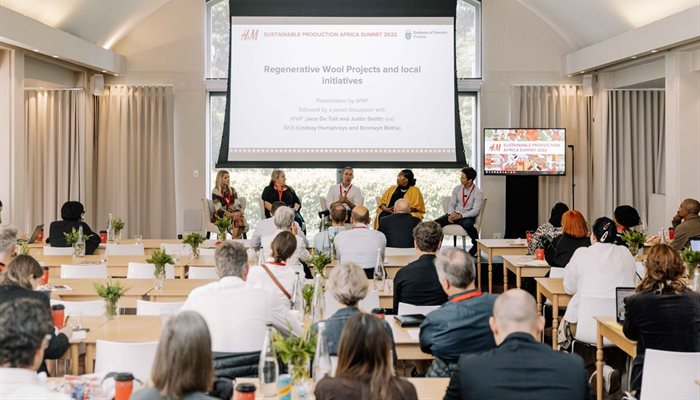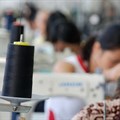When will H&M start manufacturing in South Africa? That's a question Caroline Nelson, H&M country manager for South Africa, gets asked repeatedly.

Caroline Nelson, H&M country manager for South Africa. Source: Supplied
And it’s little wonder as the Swedish fashion retail giant has steadily expanded its footprint to 27 stores in South Africa since launching here in 2015, and now employs 900 South Africans across its local operations. But despite having manufacturing operations around the globe and collaborating with some local brands, it does not produce garments in SA, a country whose once-thriving textile and apparel manufacturing industry was all but decimated by cheap foreign imports.
But things appear to be turning around for the local industry, with a renewed focus on localisation featuring strongly in many SA clothing retailers' strategies for the years ahead.
For H&M to begin manufacturing here though, Nelson said it needs to be a viable business move for the company. And in terms of having the technology and infrastructure to produce sustainably, “South Africa is not quite there yet”, she said, particularly when it comes to making sustainable fashion that's affordable and accessible to the majority of consumers.

Source: Supplied
“We don’t want to produce like we did 20 years ago,” Nelson noted. She was speaking at the H&M Sustainable Production Africa Summit, an event held in Cape Town recently to facilitate discussion among retailers and suppliers to grow a sustainable South African clothing manufacturing industry - one that produces competitively but reduces waste and minimises the use of water, energy and chemicals.
At the event, Nelson called on local retailers to collaborate on designing a sustainable future for South African clothing production that will benefit both national and international producers.
“The goal is to support each other to make South Africa the global future of sustainable production. We aim to lead the change towards a circular and net zero fashion, and use our scale to create a better industry.”
Towards a circular product life cycle
As a significant global fast fashion player, H&M has been on the receiving end of much criticism for unsustainable production methods in the past. But the company has been on a journey to clean up its act and its supply chain, by redesigning its production operations as it strives towards its 2040 zero net-carbon goal.
To get there, the company has focused investment on technology to improve production design, efficient recycling and the development of new materials that will have less impact on the planet.
H&M is aiming to double sales but reduce environmental impact, said Harsha Bammanahali, H&M’s head of material innovation and strategy, who joined the event virtually. To do this, the retailer is working to decouple growth from natural resources as it journeys towards enabling a fully circular life cycle for products.
“The majority of clothing produced in the world goes to landfill. This is a problem for sustainability but also for businesses because we’re discarding valuable resources. Fashion should be able to take care of itself by reusing resources that are being discarded.”
Part of the sustainability journey involves improving demand forecasting to reduce overproduction. Bammanahali also highlighted H&M’s introduction of an internal carbon pricing model and tool to help quantify costs for the emissions from the different decisions taken by the group.
In terms of textiles, Gagan Bansal, H&M’s head of material innovation and strategy, noted during the event that the retailer has set goals to use 100% sustainable or sustainably-sourced materials by 2030, and by 2050 it aims to have recycled materials comprise 30% of those used across H&M products. In the event that virgin materials are needed, H&M will prioritise natural fibres that are produced using regenerative practices.
Currently, the majority of H&M’s global wool is sourced in South Africa and the retailer is aiming to support the establishment of more sustainable wool production by working with WWF and regenerative agriculture projects in the rural grasslands of the Eastern Cape.
False perception around sustainable production
During a panel discussion titled ‘Solutions for the 21st Century’, Mike Mikkelborg, founder of Sustainable Fashion Strategy, shared high hopes for the potential of South African clothing manufacturing and likened it to “a phoenix rising”. He said that since SA has yet to develop an industry-wide sustainable clothing manufacturing operation, it allows the industry to lay the groundwork to “build back better from scratch”.
“There’s a false perception around sustainable production. It’s not less attractive in terms of margins. Factories with good working conditions have higher productivity,” he noted.
Mikkelborg affirmed that manufacturing can be a powerful job creator in South Africa, but said that retailers must start with having clear objectives, and they then need to bring government and investors to the table.
“I believe South Africa can be a substantial manufacturer for local and international brands,” he said.













































